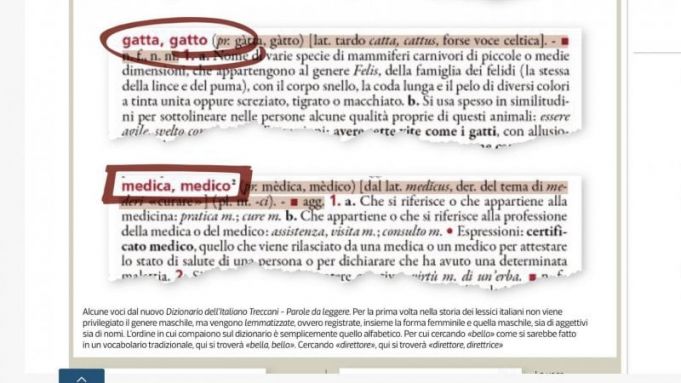Treccani tackles gender discrimination with "revolutionary" new edition.
Italy's historic Treccani dictionary will register the feminine form of nouns and adjectives on an equal footing with the masculine as well as abolishing gender stereotypes in its latest edition due to be published in October.
For the first time in the history of Italian vocabularies, the masculine gender will not get privileged treatment.
The order is also alphabetical so if searching for - as an example - the word "beautiful", the feminine "bella" will be listed before the masculine "bello".
In another breakthrough, the dictionary will register the professions of women whose titles, although existing in the Italian language, were historically considered jobs for men.
These include “avvocata” (lawyer), “sindaca” (mayor), “ministra” (minister), “medica” (doctor), “notaia” (notary) and “soldata” (soldier).

By the same token, the term "housewife" (casalinga) will no longer be registered only as feminine but will also include the masculine form "casalingo".
Likewise the dictionary will tackle gender stereotypes by eliminating references and examples in which the woman is at home cooking and ironing while the man is generally a manager or reading a newspaper.
The new edition is presented by Treccani as "an ambitious and revolutionary project, in which tradition and progress come together to witness the socio-cultural changes of our country", recognising and validating "new nuances, definitions and meanings".
Giuseppe Patota, who directed the changes together with Valeria Della Valle, told newspaper Corriere della Sera that the newly reorganised edition "absolutely does not create a difficulty for those who consult the dictionary, but gives words back a truth and reality denied, cancelled for centuries".
The updated dictionary will also list new terms, many of them relating to covid, such as lockdown, distanziamento sociale (social distancing), DAD (online learning), termoscanner and smartworking.
No comments:
Post a Comment